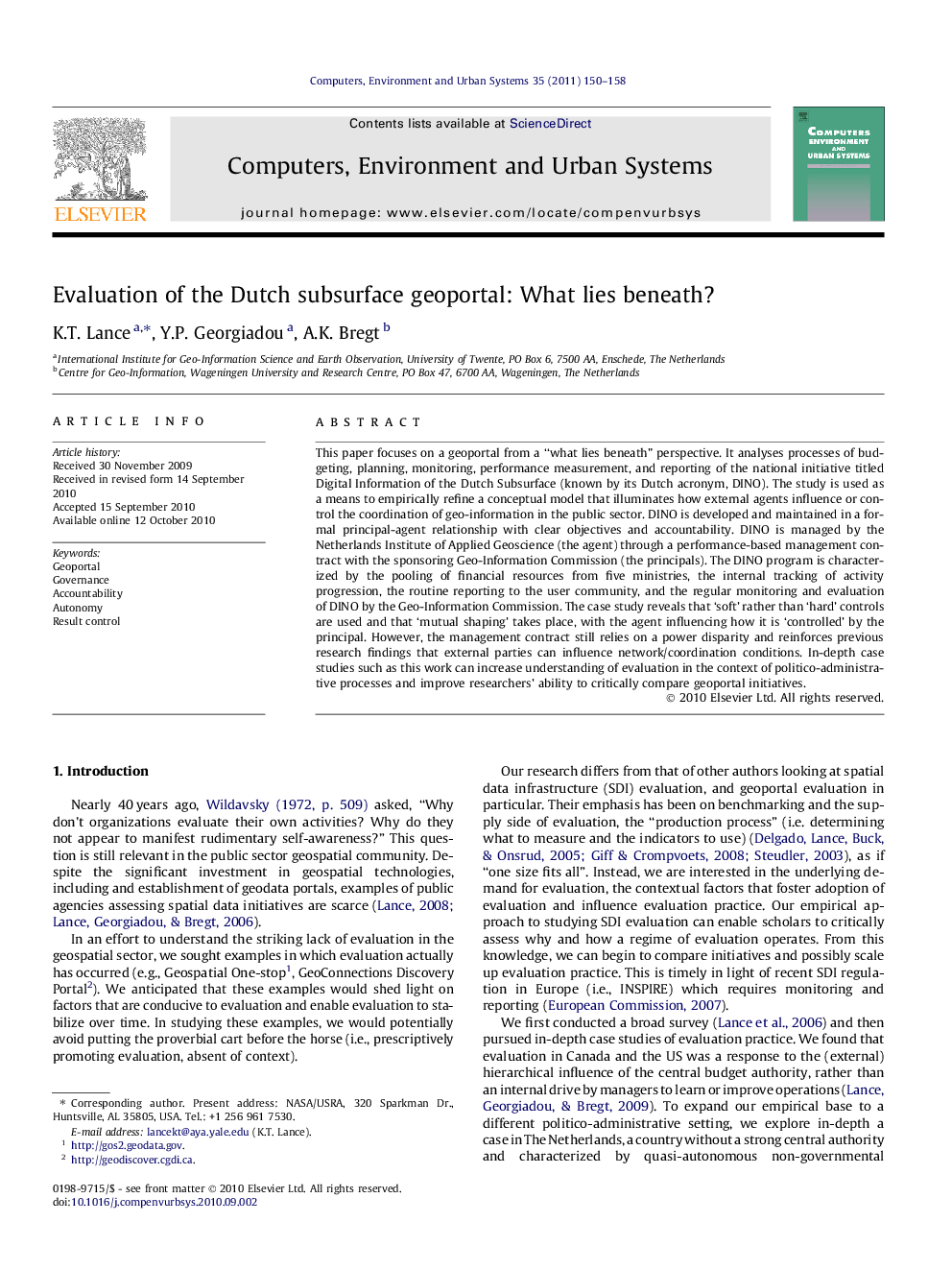| کد مقاله | کد نشریه | سال انتشار | مقاله انگلیسی | نسخه تمام متن |
|---|---|---|---|---|
| 506660 | 864937 | 2011 | 9 صفحه PDF | دانلود رایگان |

This paper focuses on a geoportal from a “what lies beneath” perspective. It analyses processes of budgeting, planning, monitoring, performance measurement, and reporting of the national initiative titled Digital Information of the Dutch Subsurface (known by its Dutch acronym, DINO). The study is used as a means to empirically refine a conceptual model that illuminates how external agents influence or control the coordination of geo-information in the public sector. DINO is developed and maintained in a formal principal-agent relationship with clear objectives and accountability. DINO is managed by the Netherlands Institute of Applied Geoscience (the agent) through a performance-based management contract with the sponsoring Geo-Information Commission (the principals). The DINO program is characterized by the pooling of financial resources from five ministries, the internal tracking of activity progression, the routine reporting to the user community, and the regular monitoring and evaluation of DINO by the Geo-Information Commission. The case study reveals that ‘soft’ rather than ‘hard’ controls are used and that ‘mutual shaping’ takes place, with the agent influencing how it is ‘controlled’ by the principal. However, the management contract still relies on a power disparity and reinforces previous research findings that external parties can influence network/coordination conditions. In-depth case studies such as this work can increase understanding of evaluation in the context of politico-administrative processes and improve researchers’ ability to critically compare geoportal initiatives.
Research highlights
► In-depth case studies improve scholars’ ability to compare geospatial initiatives.
► Accountability requirements (evaluation) enable, rather than confine, managers.
► Performance-based contracts may act as soft rather than hard coordination instruments.
► ‘Mutual shaping’ enables agent to influence how it is controlled by its principal.
► Public (geospatial) managers may consider evaluation as means to obtain legitimacy.
Journal: Computers, Environment and Urban Systems - Volume 35, Issue 2, March 2011, Pages 150–158